
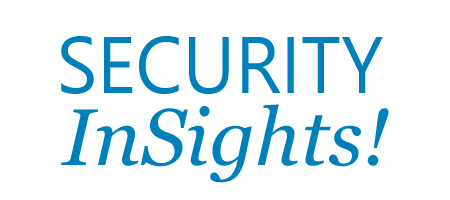


![]() Point(s) of Contact
Point(s) of Contact
Pamela Hamilton / FSO

843.327.3273
pamela@appliedsecurityknowledge.com
Richard Carmichael / ITPSO
678.221.7834
rcarmichael@laochservices.com

DoD Hotline
dodig.mil/hotline / 800.424.9098
SOURCE: CNN by Sean Lyngaas – May 6, 2024
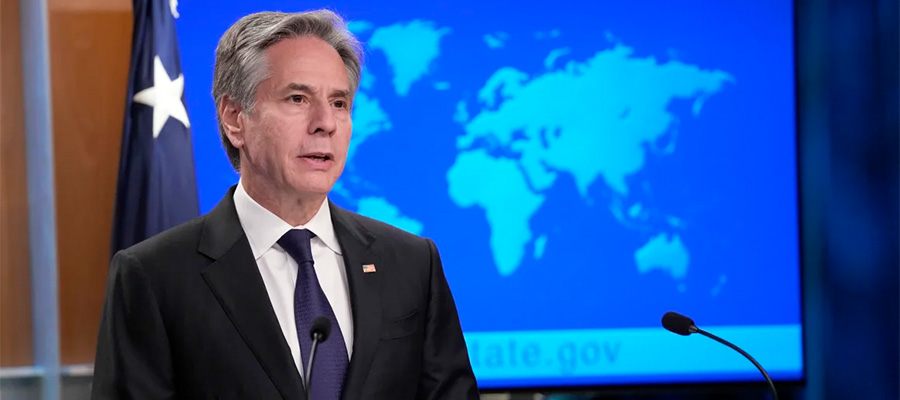
Secretary of State Antony Blinken speaks about the recently released 2023 Country Reports on Human Rights Practices during a briefing at the State Department in Washington, Monday, April 22, 2024. Susan Walsh/AP
The US State Department on Monday released an ambitious new cybersecurity strategy that seeks to curb Russia and China's digital influence in the developing world and blunt those countries' alleged efforts to interfere in elections.
With roughly half of the world's population holding elections in 2024, their vulnerability to "cyber-enabled interference" is "particularly acute" and requires the US to continuously expose hackers and propagandists trying to undermine confidence in democracies, says the strategy, which CNN has reviewed.
"We have communicated and will continue to communicate to Russia and to China that we view interference in our democratic processes in the United States as absolutely unacceptable," Nate Fick, the State Department's top cyber diplomat, said in an interview. "Secretary [Antony] Blinken has said it, and I have said it."
Fick accompanied Blinken on a trip to China last month, where Blinken told CNN that the US has seen evidence of Chinese attempts to "influence and arguably interfere" with the upcoming US elections.
The new State Department strategy lays out principles that US diplomats will try to use to rally support for implementing tech policies and isolating autocratic regimes that control the flow of information. Washington is "unleashing our diplomatic arsenal" to help "innovative" tech firms from the US and elsewhere compete for business opportunities, Blinken said in a speech announcing the strategy on Monday at the RSA Conference in San Francisco, one of the world's biggest tech forums.
SOURCE: Reuters by Zeba Siddiqui – May 10, 2024

The U.S. FBI is working towards charging hackers from the aggressive Scattered Spider criminal gang who are largely based in the U.S. and western countries and have breached dozens of American organisations, a senior official said.
The young hackers grabbed headlines last year when they broke into the systems of casino-operators MGM Resorts International (MGM.N), opens new tab and Caesars Entertainment (CZR.O), opens new tab, locking up the companies' systems and demanding hefty ransom payments. From health and telecom companies to financial services, they have hacked a range of organisations over two years, piling pressure on law enforcement agencies to thwart them.
"We are working towards charging individuals where we can with criminal conduct, in this case, largely around the Computer Fraud and Abuse Act," Brett Leatherman, the FBI's cyber deputy assistant director, told Reuters in an interview.
SOURCE: Security Week by Ionut Arghire – May 8, 2024

Called TunnelVision and relying on manipulating route tables, the set of rules that computers use to decide which network traffic should be sent through, an attacker could use the technique without having to compromise the DHCP server.
The technique exploits CVE-2024-3661, a DHCP design flaw where messages such as the classless static route (option 121) are not authenticated, exposing them to manipulation.
"An attacker with the ability to send DHCP messages can manipulate routes to redirect VPN traffic, allowing the attacker to read, disrupt, or possibly modify network traffic that was expected to be protected by the VPN," a NIST advisory reads.
By exploiting the vulnerability, an attacker on the local network could redirect traffic to the local network instead of the VPN. Leviathan, which calls the bypass 'decloaking', has published full technical details on TunnelVision.
SOURCE: ClearanceJobs by Sean Bigley – April 28, 2024

For many years, security clearance applicants have completed Standard Form (SF) 86 to initiate the required background investigation. Although the form has seen periodic updates – most notably, to the mental health questions – it has asked the same questions regarding applicant drug use for decades.
That will soon be changing thanks to a major overhaul of the vetting process that merges the SF-86 with its sister forms SF-85 and SF-85P into a new "Personnel Vetting Questionnaire" (PVQ). The new PVQ, which was approved by the Office of Management and Budget in December 2023 and will be rolling out across government this year, separates the drug use questions into two categories "in recognition of changing societal norms"[1]: (a) cannabis and cannabis derivatives (e.g., CBD), and (b) other illegal drugs. "In addition, the PVQ has a more limited scope of questioning regarding past use of marijuana in comparison to other illegal drugs.
While both changes might seem encouraging to marijuana enthusiasts, they appear to be a case of form over substance that should give applicants pause. I see three reasons for caution and will address each in turn:
First, the National Adjudicative Guidelines for Security Clearances – the standards against which all applicants are assessed – remain currently unchanged, as does the Federal Controlled Substances Act (CSA)...
SOURCE: ClearanceJobs by Grace Boone – May 9, 2024

You may know that 1985 is coined "The Year of the Spy," but what you may not know is that the entirety of the 1980s is just as significantly dubbed "The Decade of the Spy."
The Cold War may have been concluding at this point, but the number of spies captured by the FBI during the final days of the war is astounding. You might think that with the Cold War winding down, perhaps the number of spies passing secrets to the Soviet Union via United States government jobs would congruently decrease as well.
The 1980s proved this notion wrong as the FBI captured mole after mole. Fourteen Americans were captured in 1985 alone and, until today, we likely don't know any of the captured by name, not to mention an idea of what their time was like as a spy.
SOURCE: Gov Info Security by Tom Field – May 6, 2024
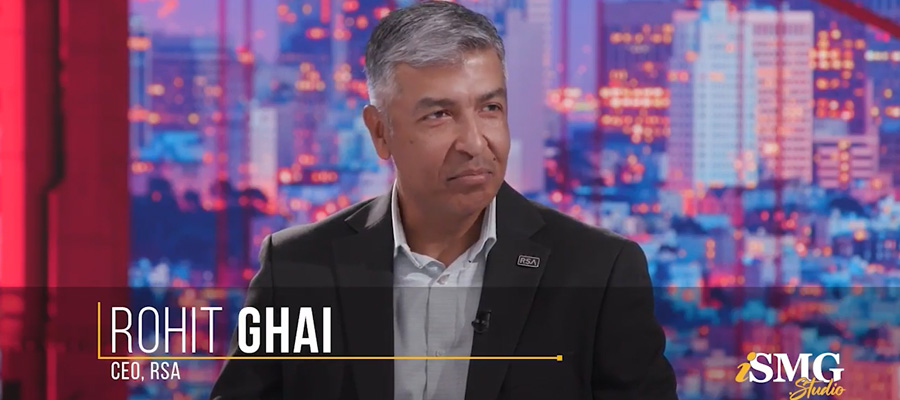
The federal government has expanded its regulations for cybersecurity best practices with the long-awaited NIST CSF 2.0 standards, and the new guidelines place more emphasis on governance and overall risk management, as well as the "outsized role of identity in the context of a zero-trust security posture," said Rohit Ghai, CEO, RSA.
The new regulations, which replace the NIST rules adopted 10 years, include badly needed updates that recognize the many challenges in the threat environment facing everyone. "2.0 broadens the scope of the document to beyond just critical infrastructure. Cybersecurity is now everybody's problem," Ghai said.
In this video interview with Information Security Media Group at RSA Conference 2024, Ghai also discussed:
SOURCE: US Department of Justice – April 30, 2024
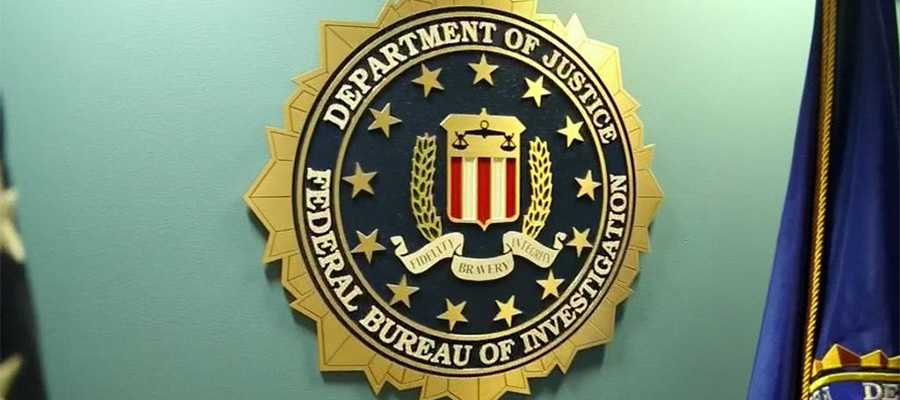
John Murray Rowe Jr., 65, of Lead, South Dakota, pleaded guilty today to one count of attempted delivery of national defense information to a foreign government and three counts of willful communication of national defense information.
According to court documents, Rowe, who is originally from Massachusetts, was employed for nearly 40 years as a test engineer for multiple cleared defense contractors. In connection with his employment, Rowe held various national security clearances from SECRET to TOP SECRET//SCI (Sensitive Compartmented Information) and worked on matters relating to U.S. Air Force electronic warfare technology, among other things. After committing a number of security violations and revealing a devout interest in Russian affairs, Rowe was identified as a potential insider threat and terminated from employment.
SOURCE: MSN.com ABC News – May 16, 2024

The Justice Department on Thursday unsealed an indictment charging three North Korean workers and a United States citizen with allegedly engaging in "staggering fraud" through a complex scheme where they secured illicit work with a number of U.S. companies and government agencies.
The indictment against the North Korean IT workers -- using the aliases Jiho Han, Chunji Jin and Haoran Xu -- alleges the group used fraudulent identities belonging to 60 real Americans to secure telework positions between October 2020 and 2023 that ultimately generated nearly $7 million in profits for the Democratic People's Republic of Korea.
Prosecutors further allege the group was assisted by U.S. national Christina Chapman in their efforts to obtain remote work positions, who they accuse of stationing laptops belonging to U.S. companies at various residences that the North Koreans were then able to access.
SOURCE: Federal News Network by Justin Doubleday – February 9, 2024
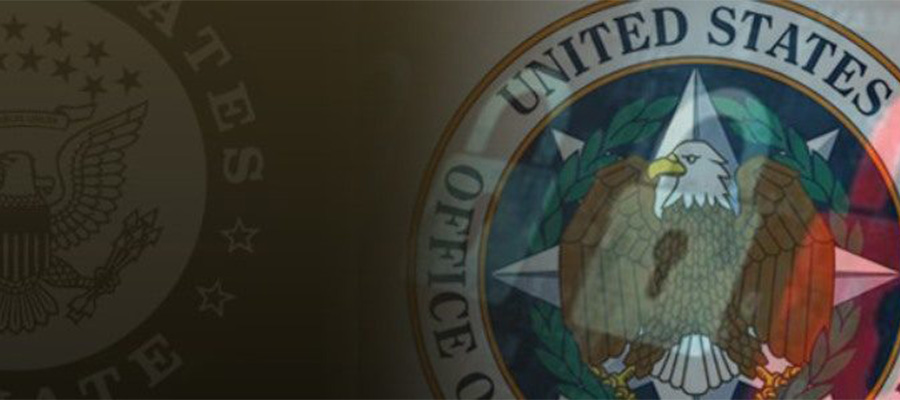
The Standard Form-86, a long-used questionnaire for government positions requiring security clearance, is set to be phased out after the White House Office of Management and Budget approved a new form replacing the SF-86 and several other legacy forms.
OMB approved the Personnel Vetting Questionnaire (PVQ) in November, according to the latest quarterly update on the "Trusted Workforce 2.0" initiative from the Performance Accountability Council. The questionnaire consolidates the SF-86, "Questionnaire for National Security," along with several other vetting questionnaires used for federal jobs, including public trust and non-sensitive positions.
The Defense Counterintelligence and Security Agency is now working on plans to integrate the PVQ into the new "eApp" web portal for background investigation applications. The effort is part of DCSA's development of a new IT system, the National Background Investigation Services (NBIS).
SOURCE: Federal News Network by Jory Heckman – May 1, 2024

The Biden administration and Congress are both taking steps to reclassify marijuana as a less dangerous drug — but the blunt truth is that these efforts would have much less of an impact on the federal workforce, compared to the general U.S. public.
The Associated Press reported Tuesday that the Drug Enforcement Agency is preparing to downgrade cannabis from a Schedule I drug to a Schedule III drug under the Controlled Substances Act.
The decision, according to the AP's reporting, still requires review from the Office of Management and Budget. If approved by OMB, the DEA would also gather public feedback before finalizing its decision.
The Department of Health and Human Services last August recommended the DEA reclassify cannabis to a Schedule III drug.
SOURCE: Security Awareness US Learning